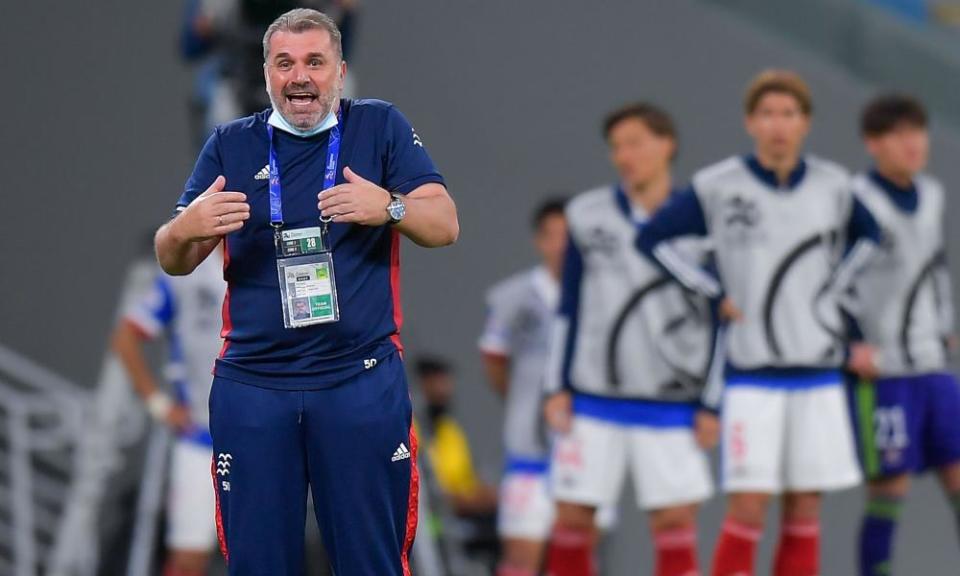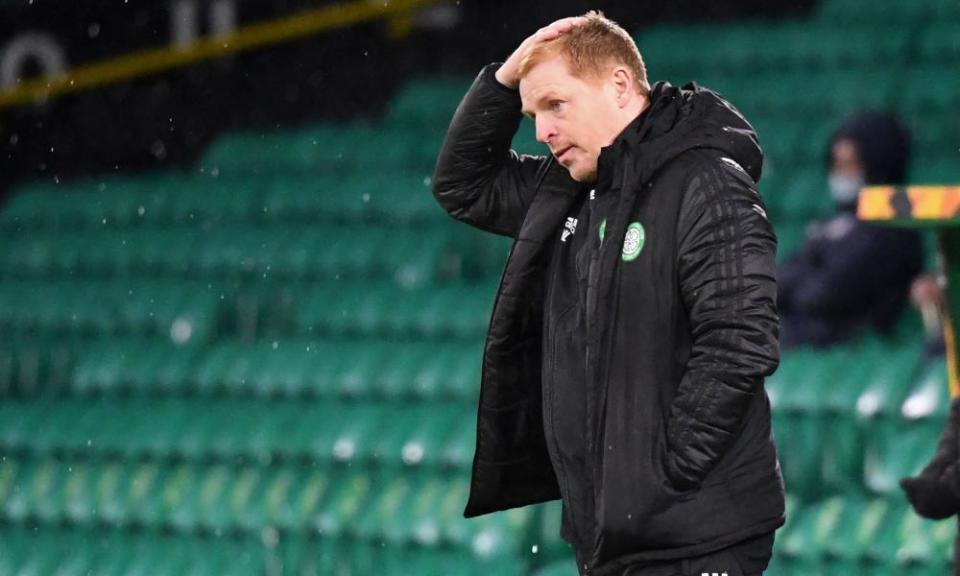Celtic gamble on Postecoglou with overhaul needed to challenge Rangers

It is never a particularly good look when Scottish football observers turn up noses at coaches from overseas. The Scots may claim to have founded the beautiful game but a pioneering status within it expired long ago. An unwillingness to broaden horizons and routinely petty, parochial attitudes have done the national sport no favours for decades.
Nonetheless, and even before the specific credentials of Ange Postecoglou to manage Celtic are considered, it is worth remembering that foreign managers do not have a particularly successful record north of Hadrian’s Wall. For every Dick Advocaat – who enjoyed vast resources at Rangers – there are umpteen Roberto Landis. Paul Le Guen was coaxed to Ibrox when one of the most sought after coaches in Europe but flopped. There is something about the Scottish football scene that requires a unique skill set. The incessant pressures of the Old Firm are even more nuanced.
Related: Celtic confirm appointment of Ange Postecoglou as new manager
That Celtic’s lengthy engagement with Eddie Howe – which they astonishingly admitted in a statement – ended in embarrassment is obvious. Howe could be more responsible than Celtic for the breakdown but it matters not in the court of public opinion. There is plenty in Howe’s backstory that rendered him a strange target in the first place. Nobody doubts the 43-year-old’s coaching talent; it was, however, reasonable to ask whether a reputation built at Bournemouth qualified Howe to manage and rebuild Celtic. Even in terms of media scrutiny, Howe would have been entering a totally new domain.
Howe’s belated refusal to succeed Neil Lennon is the reason Celtic scrambled towards Postecoglou’s most recent managerial base of Yokohama. Month upon month spent on Plan A meant other, viable candidates were unavailable by the time Howe decided he was better off remaining out of work. In defence of Postecoglou, it isn’t possible to reel off even half a dozen viable Celtic alternatives. Perhaps that is damning in itself.
More than 100 days have passed since Lennon’s second tenure ended; this event should hardly have been a surprise to anybody given a season of recurring woe. In the meantime, a head of football operations, Nick Hammond, has exited, a hitherto anonymous new chief executive, Dominic McKay, has arrived and a clutch of Celtic’s best players have edged closer to the transfer they crave. Scotland’s imminent European Championship participation has switched spotlight away from a Celtic hierarchy that otherwise would have been accused of dithering.
Dermot Desmond, the principal (and absentee) shareholder, does not meaningfully engage with Celtic’s customer base. They, in turn, are rightly furious at the ease Rangers ended Celtic’s concerted spell of domestic dominance. Celtic finished last season rudderless and listless, with the team noticeably unpopular among their own support. No club has a monopoly on bad decision-making but Celtic, for so long an immovable object in Scotland, have recently got so much wrong that the waste of resource has been epic.

The football department requires an overhaul and quickly if Rangers are to be halted in their purposeful tracks. With Scotland’s 2021-22 title winners almost guaranteed a Champions League group stage place for the following campaign, Celtic have gambled on Postecoglou when the stakes could barely be higher. And make no mistake, this is a gamble; taking any coach into territory so far from their natural habitat dictates that. Postecoglou has no connection with Celtic and no working experience at a club of their stature.
It may well be that Postecoglou is a fine manager. Enough learned judges, particularly in his native Australia, certainly think so. He has a commitment to attacking football and a single-mindedness which should serve him well. He looks capable of shrugging off Old Firm noise.
Yet background questions linger. Postecoglou, we are told, needs time to implement his philosophy. That commodity is not available to Celtic. Howe’s volte face was confirmed on 28 May. Postecoglou – confirmed on 10 June – has to quarantine when he arrives in Scotland. The statement that confirmed his arrival included input from “incoming” and “outgoing” chief executives. There was no detail about broader structural change. Small issues, but ones that hardly help the optics.
When Celtic hired Ronny Deila in 2014, part of the public reasoning was that the Norwegian was rated highly by Manchester City. It is at least coincidental that Yokohama F Marinos are part owned by the City Football Group. Celtic have no formal connection to CFG – and it could be argued there are worse operations to piggy-back upon – but even the perception of panic calls to Manchester by a club that prides itself on professionalism is a damaging one.
Since Gordon Strachan left Celtic in 2009, a year later than he should have, the club’s record with managers is patchy. Tony Mowbray failed, Lennon’s first term of office was a huge success and Deila’s shortcomings were routinely exposed before Brendan Rodgers raised the bar. Lennon’s return has to be placed in the error category given the way Celtic imploded last season. The following of previous decision-making processes therefore looks dangerous.
Related: Renaissance man: how Mancini turned Italy from mess to winning machine | Nicky Bandini
Postecoglou has to rebuild a team and oversee a complete change in external attitudes in his first job in European football. He is 55. Albeit this continent is not where football starts and ends, it is fair to question why no club of substance in Europe hired him before, especially after guiding Yokohama to league success in 2019. A year later, they were ninth.
Celtic need a goalkeeper, two centre-backs, two full-backs, at least one midfielder, two wingers and two strikers to be serious title challengers. Pre-season training is scheduled to begin on 17 June.
There is no obvious link in credentials or style between Howe and Postecoglou. For reasons that will surely be explained, Celtic leapt from a highly rated Premier League coach to seasoned foreign campaigner. The Australian finds a club in desperate need of a shake-up, presided over by someone who understands the territory. Rangers are unlikely to be worried by Postecoglou’s appointment; only swift action will turn the tide in his, and Celtic’s, favour.

 Yahoo Sport
Yahoo Sport 





































